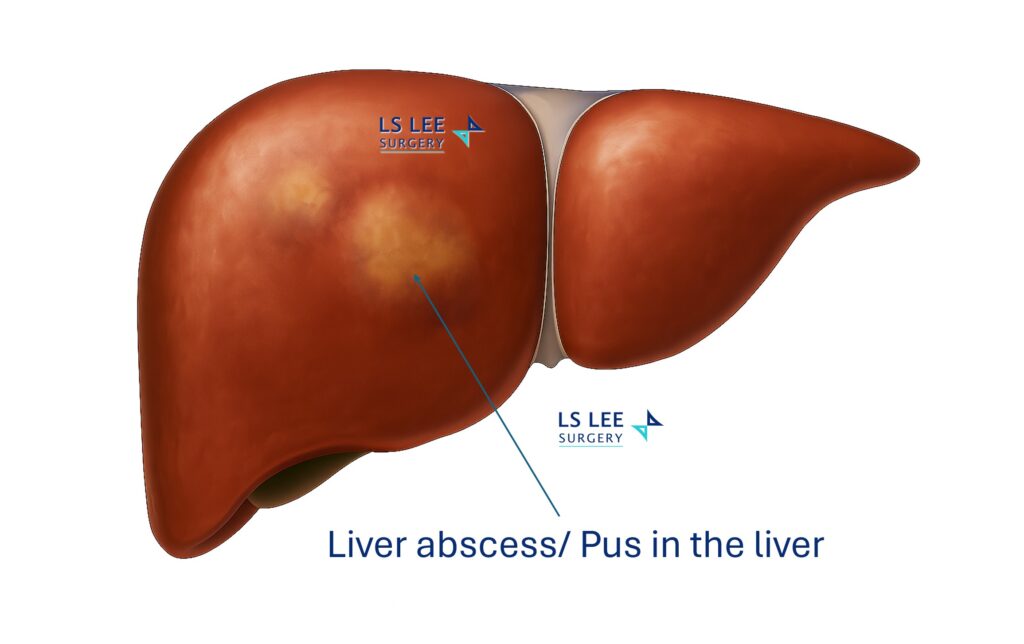Liver Abscess: Symptoms, Causes & Treatment in Singapore
A liver abscess is a condition where a pocket of pus forms in the liver due to infection or injury. It can occur from infections originating in nearby organs like the gallbladder (acute cholecystitis or cholangitis) or from abdominal conditions such as appendicitis or diverticulitis. Liver injuries, tumours, or biliary tract diseases can also lead to liver abscesses.

Common Symptoms of Liver Abscess
Symptoms of a liver abscess may include:
- Fever, chills, and rigours
- Vomiting
- Diarrhea
- Pain in the upper abdomen
- Sudden and unexplained weight loss
In older adults, symptoms can sometimes be less specific, such as general tiredness or lethargy.
Diagnosis of Liver Abscess
A liver abscess requires a detailed clinical assessment, blood tests, and imaging scans (such as ultrasound or CT scans) to confirm the diagnosis accurately.
Treatment Options for Liver Abscess
Treatment for a liver abscess usually involves:
- Antibiotics: Effective for abscesses caused by bacterial infections.
- Needle drainage: A minimally invasive procedure to drain the pus using ultrasound or CT guidance.
- Surgery: In cases where antibiotics or needle drainage are insufficient, surgical removal or drainage may be necessary.
When to Seek Medical Advice
If you develop signs of abdominal infection—such as fever, abdominal pain, or ongoing tiredness—it’s crucial to seek medical care right away. Diagnostic tests, including imaging scans, are often necessary to pinpoint the source of infection. Prompt treatment by a multidisciplinary team including a liver specialist and an infectious disease specialist are essential, as delays can result in serious complications like sepsis.
Schedule Your Consultation
For expert care in diagnosing and treating liver abscesses, book a consultation with our specialist liver team today. We offer personalized and comprehensive care to support your recovery.







